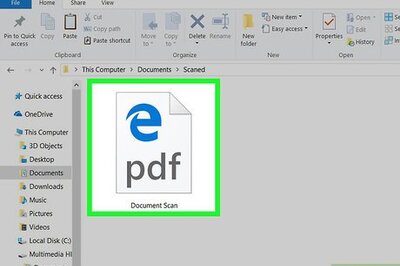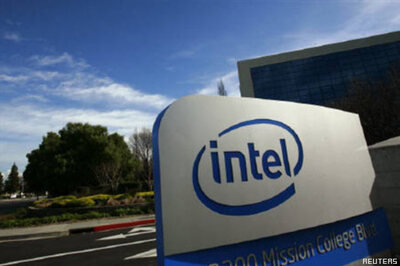
views
Yale economist Irving Fischer’s comment, "Stock prices have reached what appears to be a permanently high plateau," was prescient in its timing — less than a week ahead of Black Tuesday in 1929. Though few are willing to accept that experts can often be as clueless as a novice in the markets, experts err predictably and often under conditions of uncertainty. The problem of expert failure is a direct outcome of how most of us tend to process information.
The amount of information an investment manager is expected to process is staggering. Quite apart from the problem of arriving at reliable forecasts, which in turn depend on rapidly changing and hard to quantify assumptions, numerous subjective factors such as the quality of management, level of risk tolerance and succession planning come into play. Therefore, the investment expert is not only required to mentally store, update and cross-reference a gigantic amount of highly complex information, but also to attach different weights to the huge number of factors upon which the conclusion is contingent. Hardly surprising then, that the reach of conventional investment theory may exceed the grasp of the vast majority in using it appropriately!
Experts are convinced that under conditions of complexity and uncertainty, additional information of relevance provides a meaningful advantage in arriving at superior decisions. Seems perfectly logical, yet study after study unanimously points out that while confidence increases, the accuracy of decision making is virtually unchanged by providing additional information inputs! Am I hallucinating or is institutional investment research proof positive of this paradox? The human mind chooses to simplify and rationalise what seems at times to be unfathomable. Often, investors take note of information that happens to be coincidental yet come to believe that these inputs form the basis of "predictable relationships". If the stock price goes up, this false belief in illusionary correlation gets further ingrained.
Unquestionably there are individuals with an amazing gift for abstract reasoning and a deep-rooted understanding of what the statistician labels ANOVA (analysis of variance). Yet for every Viswanathan Anand or Warren Buffett, there are millions for whom the standards of abstract reasoning required to succeed is way too complicated and hence, silently lethal!
Comprehending the consequences of contagion sparked by the "jasmine revolution" or the response to the findings of the JPC or the conundrum of alcohol therapy which most pithily describes current US monetary and fiscal policy is a loser’s game. Succeeding in the current market environment needs patience, a nuanced understanding of mean reversion and sticking with the odds based on an objective assessment of genuinely long-term business performance.
Ador Fontech (Rs. 395) presents a compelling opportunity. Though net revenues will just cross Rs. 1.5 billion in the current year, the positive effects of being a quasi-monopoly are dramatically evident. Though sales have just doubled, operating cash flow has more than quadrupled since 2005 and average five-year ROCE is in excess of 55 percent! Impressively, margins have doubled in the last five years and are headed further north in future. Growth demands limited capital spending, which has allowed management to maintain dividend pay-out in excess of 30 percent and simultaneously compound book value at over 25 percent in the long haul. The stock trades at under one time sales, less than eight times current earnings and offers a dividend yield of 3 percent to boot! As Bernard Baruch put it: "Get the facts, study them patiently, apply imagination."
Disclosure: This column is neither an offer to sell nor solicitation to buy any of the securities mentioned herein. The author, a partner at Fortuna Capital, frequently invests in the shares discussed by him.



















Comments
0 comment